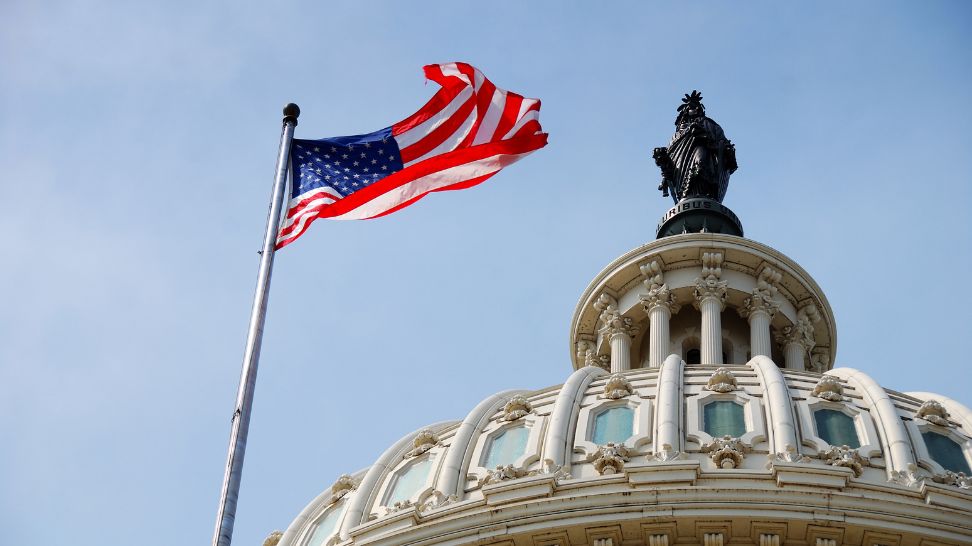U.S. citizens face mounting challenges in foreign banking driven by global institutions’ hesitance due to stringent U.S. regulations, like FATCA and increased oversight from entities such as the IRS and SEC. This evolving landscape is reshaping how Americans navigate overseas financial services.
Financial institutions in many different countries, including those in Switzerland, the United Kingdom, and other popular destinations for American expatriates, are increasingly reluctant to take custody or management of assets owned by U.S. citizens or residents. This alarming trend began around twenty years ago and has caused increased difficulties for U.S. citizens living abroad, as well as Americans simply looking to protect their wealth using offshore banks.
Main Causes for Foreign Banks Refusing U.S. Clients
As is often the case in offshore financial matters, this is a complex situation with a variety of identifiable causes that have made foreign banks more cautious about doing business with U.S. citizens. This article discusses the main reasons many banks outside the U.S. refuse American clients.
Increased Pressure from U.S. Government Agencies
One of the principal reasons is increased pressure by U.S. government agencies, such as the Internal Revenue Service and the Department of Justice,in their efforts to identify and pursue individuals who might be using offshore bank accounts to avoid paying taxes at home. The U.S. government is suspicious that many of the funds held by Americans abroad are not being adequately reported for tax purposes. This was a more common practice in the past, but recent regulations have made this increasingly difficult and, in many cases, downright unfeasible.
Foreign banks could potentially face prosecution from U.S. authorities if it is determined they assisted Americans in concealing assets. The 2008 investigation regarding the Swiss bank UBS was perhaps the largest investigation of this type against an offshore banking institution. This raised awareness about the risks of banks working with U.S. clients around the world. To this day, the Department of Justice maintains a target list of banks for review and prosecution.
The Foreign Account Tax Compliance Act (FATCA)
The Foreign Account Tax Compliance Act was enacted in 2010, and placed additional regulations on offshore bank accounts and the amount of information that must be provided to the U.S. government. FATCA requires U.S. citizens or residents, including people who live outside of the U.S., to disclose their bank accounts held abroad to the Treasury Department. This is done by completing a Statement of Foreign Financial Assets along with yearly income tax return.
But FATCA also requires foreign banking institutions to report their U.S. clients to the IRS, which represents additional work, compliance costs, and potential liability for banks. In response, thousands of foreign banks, investment funds, and other financial institutions agreed to provide the U.S. authorities with the names, account numbers, and balances of their American clients. Naturally, foreign banks were not pleased about these additional requirements, and many foreign banks instead simply started refusing U.S. citizens as clients due to FATCA.
Even without taking FATCA into account, the U.S. financial regulatory system is complex, and foreign banks may not want to navigate it, especially if they have limited experience dealing with U.S. regulations. This complexity can include anti-money laundering (AML) rules, the Bank Secrecy Act (BSA), and the Office of Foreign Assets Control (OFAC) sanctions. Foreign banks may view American clients as high-risk due to the potential for regulatory scrutiny and associated costs. They might decide it’s not worth the risk of inadvertently violating U.S. laws.
The Securities and Exchange Commission (SEC)
The Securities and Exchange Commission (SEC) is in charge of regulating investments offered in the U.S. Investment advisors are required to register with the SEC in order to provide financial advice to U.S. citizens, whether they are inside or outside the country. This is another regulatory hurdle advisors outside the U.S. might not want to face. It represents additional regulatory oversight and disclosure requirements, and it may simply not make sense unless the firm focuses a large percentage of its practice on serving U.S. clients.
Common Reasons for Refusal
- FATCA Compliance
- Complex U.S. Regulatory Environment
- Privacy Concerns
- Costs of Compliance
- Risk Management
- Market Focus
- Geopolitical Factors
Why Consider Banking Abroad?
While the world continues to become more globalized every year, the number of Americans holding offshore bank accounts remains small. Due to the increased regulation discussed above, the use of offshore banks for tax avoidance has decreased. However, having an offshore bank account as an American can be legal and safe provided all the IRS and compliance requirements are met.
Benefits of Offshore Banking
If you are a U.S. citizen living in America, you might think there is little or no value in having a bank account in a different country. Many Americans have perfectly legitimate and practical reasons for holding their funds offshore, either due to an estate or asset protection plan or to achieve currency and investment diversification. In addition, events such as the recent disruption of several major U.S. banks demonstrate the importance of making sure our banking institutions are on steady financial ground.
Investment advisors outside the U.S. tend to have a different set of capabilities and are likely to be more globally oriented, especially in European or Asian financial centers. Investing beyond national borders can provide increased diversification and better risk profiles for your portfolio. Many Americans are also looking to move some of their assets abroad to shelter their wealth from potential litigation.
Asset Protection Outside the U.S.
Offshore bank accounts, when used in combination with an offshore asset protection trust, can provide strong legal protection against potential future lawsuits and creditors. In addition to cash bank accounts, a wide variety of different assets such as cryptocurrencies, real estate holdings, and others can also be protected using offshore asset protection trusts and banking institutions outside of the U.S. Offshore trusts are generally considered to have the highest form of asset protection.
Finding a Suitable Foreign Bank
The foreign banks that do accept American clients often have specialized procedures and compliance measures in place to manage the regulatory requirements associated with serving U.S. customers. While it might be more challenging to find a safe and U.S.-compliant financial institution outside the U.S., we can make this happen in locations such as Switzerland, Liechtenstein, the Cook Islands, or the Caribbean.
Conclusion
As a result of the increased regulation and government action from U.S. authorities, an increasing number of banking institutions all over the world are less likely to accept U.S. clients. The costs of compliance and potential risks associated with inadvertent oversights have made it simply not practical for many offshore banks to allow U.S. clients. This means it has become harder for U.S. clients to find a trustworthy and secure foreign bank or financial advisor who is willing to welcome their business.
It’s essential to research and carefully consider your specific financial needs and circumstances when looking to open an account with a foreign bank as an American client. Consulting with an attorney who specializes in international asset protection can be highly beneficial. If you have questions about whether an offshore bank account or other asset protection solution is right for you, contact Blake Harris Law. Thanks to our experience in the offshore asset protection field, our team has access to a variety of financial firms all over the world.
Frequently Asked Questions
What are the challenges of international banking?
U.S. citizens face several challenges in international banking. These include foreign banks’ reluctance to manage assets owned by Americans, increased pressure from U.S. government agencies, implications of regulations like FATCA, and oversight from entities such as the IRS and SEC. The complex U.S. financial regulatory system can deter foreign banks, viewing American clients as high-risk due to potential regulatory scrutiny and associated costs.
Is it illegal for a U.S. citizen to have a foreign bank account?
No, it’s not illegal for a U.S. citizen to have a foreign bank account. However, it is essential to ensure all IRS and compliance requirements are met, including the disclosure of such accounts.
Do U.S. citizens have to report foreign bank accounts?
Yes, U.S. citizens and residents are required to report their foreign bank accounts. Under the Foreign Account Tax Compliance Act (FATCA), they need to disclose their bank accounts held abroad to the Treasury Department, typically by completing a Statement of Foreign Financial Assets alongside their yearly income tax return.
What challenges do U.S. banks face in foreign markets?
U.S. banks face challenges such as differing regulatory environments, cultural and business practice variations, currency fluctuations, and geopolitical risks. Understanding and navigating the local financial landscape, compliance with both home and host country regulations, and competition with established local banks can also pose challenges.
What are the challenges with international payments?
International payments involve multiple challenges such as currency conversion, fluctuating exchange rates, time zone differences causing delays, cross-border fees, regulatory requirements in both the sending and receiving countries, and potential security risks associated with international transactions.



